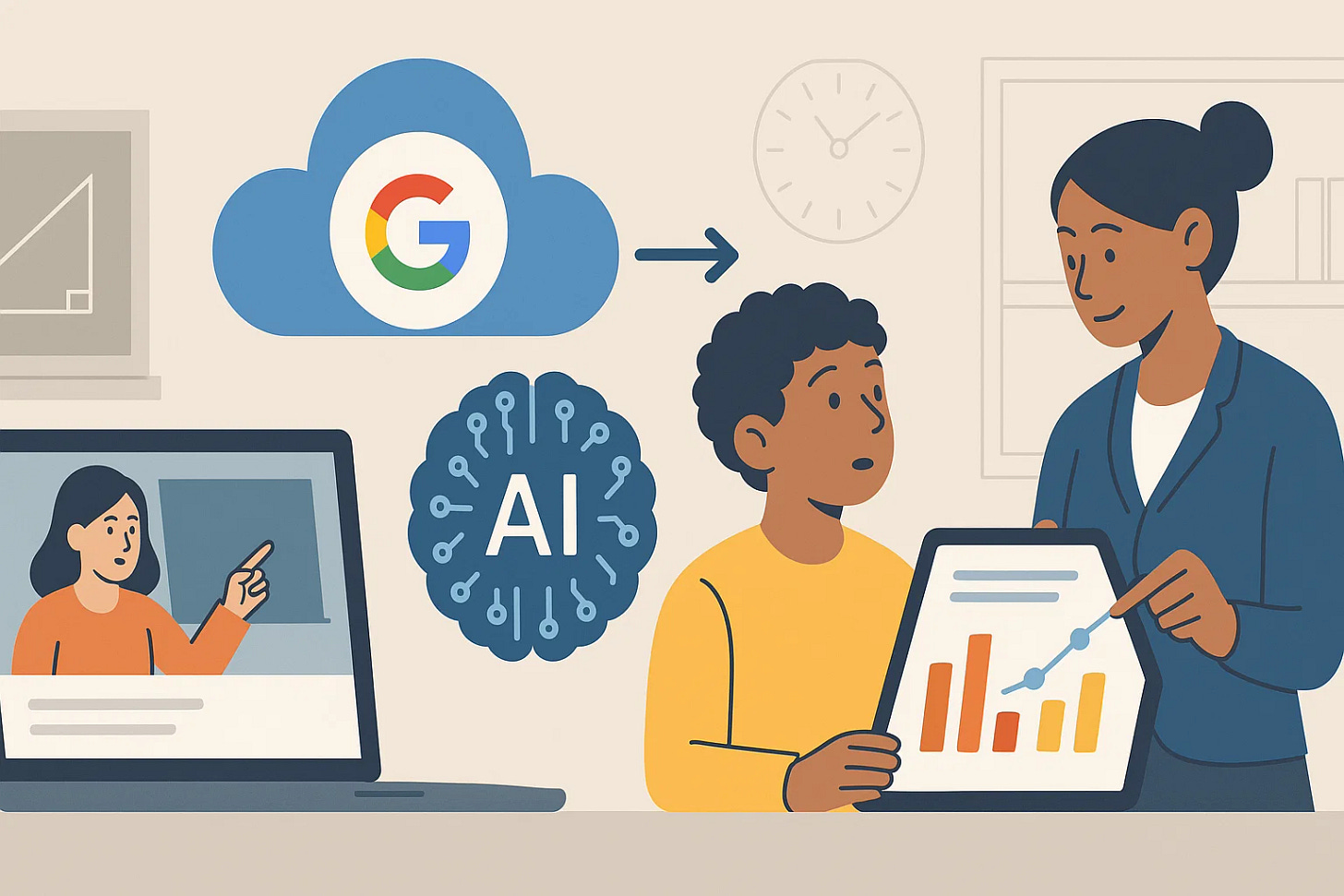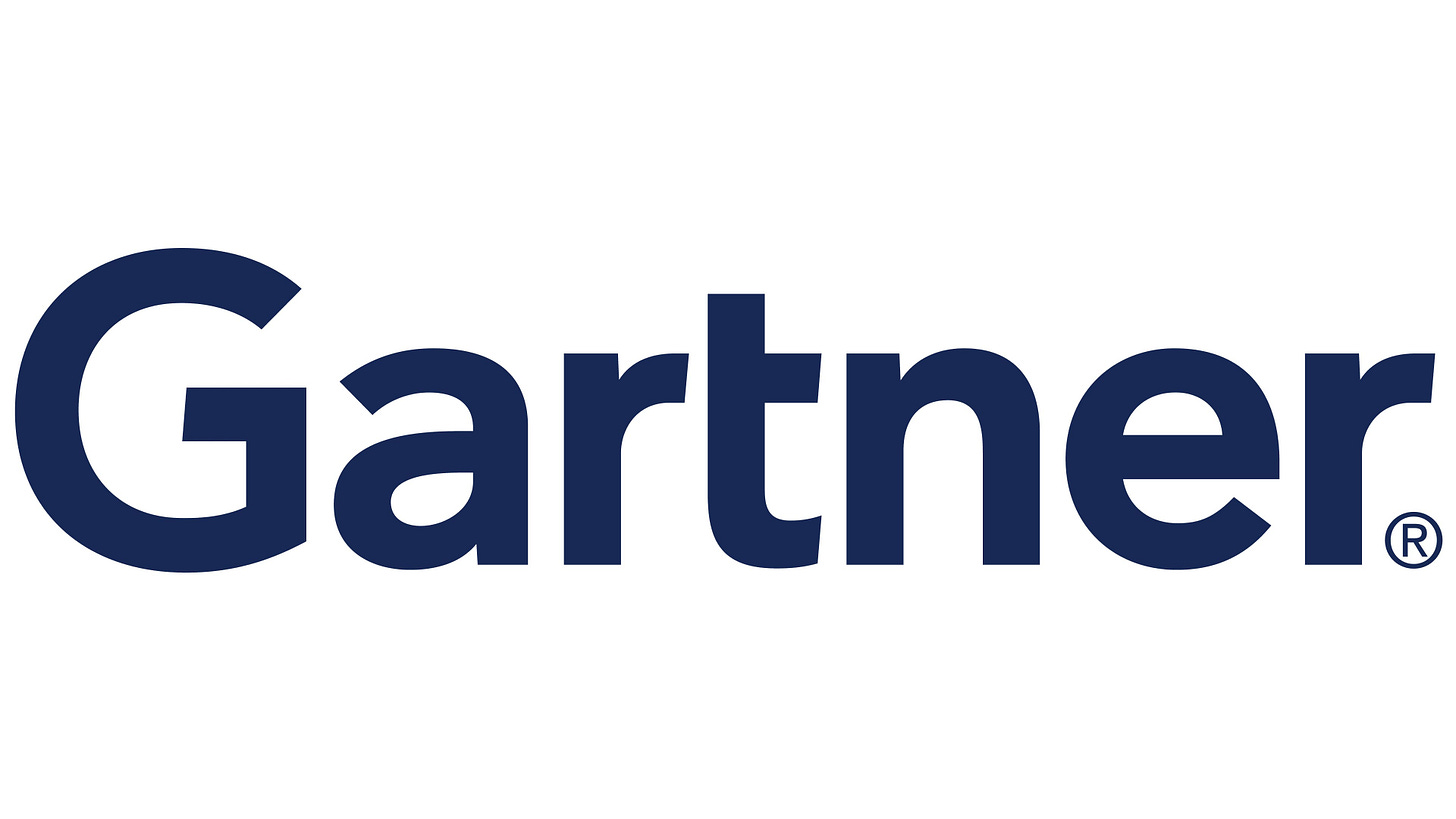💔 When AI Helps—but Doesn’t Heal
👋 Welcome! Today’s issue dives into the real role AI plays in our lives—less about companionship, more about getting things done. From its growing influence in education to new research on how rarely we turn to it for emotional support, we explore how this technology is making us reevaluate human connection.
AI & TECH
Pearson links Google AI tools – Pearson teams with Google Cloud to introduce AI-based personalized education tools for primary and secondary schools. The system adapts lessons to student needs and eases teacher workloads via real-time performance tracking. Pearson also collaborates with Microsoft and AWS for future edtech enhancements. This marks a major step toward AI-driven learning in classrooms worldwide.
Palantir targets nuclear builds – Palantir partners with a nuclear deployment firm to develop an AI-powered “nuclear operating system” aiming to streamline reactor construction. The $100 million deal supports U.S. goals to expand nuclear energy for data center demand. Trump-era policy fast-tracks licensing and deregulation for reactors. Palantir’s AI system could shorten build times and reduce costs.
Meta Nabs OpenAI’s AI Researcher – Meta recruited Trapit Bansal, a core developer of OpenAI’s o1 reasoning model, to strengthen its AI superintelligence team, signaling big tech’s aggressive AI talent war.
Microsoft–OpenAI AGI showdown intensifies – Microsoft seeks AGI clause removal; OpenAI resists, deepening tensions in pivotal AI partnership.
CAREER & WORK
AI Chatbots Rarely Provide Comfort – Anthropic’s analysis of 4.5 million Claude conversations reveals only 2.9% involve emotional support or advice; companionship and role‑play account for under 0.5%. Most interactions focus on productivity and work tasks, contradicting the narrative of AI serving as emotional companions. The company underlines that AI is primarily a content‑creation and efficiency tool. This highlights generational skepticism toward AI as substitute for human connection, reinforcing its role as task assistant.
Ford Demands Return To Office – In a shift away from pandemic‑era flexibility, Ford announced that most salaried employees must work four days per week onsite starting September. The company believes in‑person collaboration will speed its transformation into a high‑growth, margin‑focused automaker amid electric‑vehicle competition. The policy underscores tensions between hybrid work culture and traditional corporate structure.
Bank Staff Warn of AI Impacts – A TASC/FSU survey finds 88% of bank workers fear job displacement and 61% worry over AI‑driven hiring/promotion decisions. Concerns include surveillance bias, privacy loss, and under‑reskilling. Yet 45% see reduced admin time. FSU negotiated AI‑change agreements at Bank of Ireland.
ECONOMY & FINANCE
Gartner warns agentic AI flop – Gartner forecasts over 40 % of autonomous AI projects scrapped by 2027 due to cost overruns and weak ROI. Highlights hype-versus-reality in AI investments.
Markets Brace for Hawkish Fed Trades – With global trade‑deal uncertainty and July 9 tariff deadlines, Reuters warns investors markets face “pain trades” if Fed maintains high rates. Even while growth forecasts and earnings estimates remain bullish, a dovish pivot could trigger sharp corrections.
Retail Shift Fuels GDP Downgrade – U.S. Q1 GDP revised down to –0.5% due to weak consumer purchases and pre‑tariff import surge. Atlanta Fed predicts rebound ahead.
VC & FUNDING
Biren Tech Secures Big Funding – Chinese AI chip startup Biren Technology raised ¥1.5 billion (~$207M) led by state-invested funds, prepping for a Hong Kong IPO by August, boosting domestic GPU capacity under export pressure.
Canadian Deep Sky Draws Inquiries – Direct-air carbon capture testing startup Deep Sky in Alberta received $40M grant, now attracting U.S. firms.
CoreWeave IPO Yields Mixed Results – CoreWeave went public with $1.5B IPO, backed by MS & OpenAI, but carries $8.8B debt; still, Q1 revenue hit $985M.
BIG THINK
Task Over Talk: The Emotional Limits of AI
Artificial intelligence is widely celebrated for its productivity gains—helping us write emails, generate ideas, and streamline tasks. But while its practical uses continue to expand, the narrative that AI is becoming a go-to source for emotional support is largely overstated. Despite the occasional headline, most people aren't turning to AI for companionship—they’re using it to get things done, as noticed by a recent report by Anthropic, showing the overwhelming majority of users engage with AI as a taskmaster, not a therapist.
This imbalance tells us something fundamental about how most people view AI: as a tool first, an empathic listener much less often. The data reinforce what many professionals observe—AI’s chief value lies in its ability to assist with work-related tasks, not replace human-to-human connection. Studies show employees increasingly lean on generative AI to heighten productivity, sometimes at the cost of motivation or collaboration. Even as AI smooths administrative burdens and accelerates content creation, it can inadvertently erode the softer aspects of work—team cohesion, social bonds, and emotional well-being.
When people do turn to chatbots for coaching, counseling, or existential guidance, the payoff can still be real. Users in these rare “affective conversations” report increasing positivity as the exchange progresses. That sense of being “heard” mirrors other research findings: across diverse populations, AI’s consistency and lack of judgment can deliver genuine relief—even if the effect is fleeting.
One of the more celebrated AI therapies, Woebot, exemplifies this duality: engineered to offer cognitive behavioral therapy exercises, it has achieved meaningful reductions in anxiety and depression in controlled trials. But its creators are explicit—it’s a supplement, not a replacement for trained professionals.
So why focus on emotional use at all, if it’s such a small fraction of AI’s applications? Because it prompts a deeper question: what emotional needs are these moments revealing? The fact that most AI users prefer leveraging it for productivity underscores that emotional usage is an exception—even when tech can provide solace or guidance.
This minority phenomenon highlights both promise and limitation. On one hand, AI can be a nonjudgmental companion in dark moments—available anytime, offering gentle reframing or structured coaching. On the other, its role is inherently limited: no algorithm can recreate the spontaneity, shared history, and nuanced empathy of the human heart.
In the workplace, this becomes especially clear. A McKinsey study confirms that while AI tools are reshaping how jobs are done, only a small subset of companies report having integrated AI maturely—with the rest still figuring out how to balance efficiency with emotional health . Even as AI takes on the grunt work, organizations must consciously design systems that preserve team spirit, peer support, and psychological safety.
The sobering truth is this: most people aren’t seeking emotional succor from AI. They’re seeking productivity. And when they do seek something deeper, it’s still a rare exception—one that reminds us how essential genuine empathy truly is. AI may offer encouragement, structure, and the comforting echo of validation. But let’s not mistake efficiency for empathy. The real challenge for individuals and organizations alike won’t be building better chatbots—it will be using them wisely, without letting them replace the messy, irreplaceable work of human connection.
Actionable Insights:
Design AI Boundaries in the Workplace: Encourage teams to adopt AI for task-driven efficiency, but preserve space for human-led communication, feedback, and emotional check-ins. Define norms for when a real conversation is more appropriate than an automated one.
Support Emotional Health With Human Systems: If AI isn’t being used for emotional support—by design or by preference—organizations and individuals must invest in real support systems: mentorship, mental health access, peer networks, and check-in rituals that foster genuine connection.
JOBS & OPPORTUNITIES
Business Development Representative | Full time | In‑person | LIC, NY
New Grad Software Engineer | Full time | Hybrid | NY,NY
Decision Analytics Consultant | Full time | Hybrid | Evanston, IL
Entry Level Marketing Associate | Full time | Remote
Have a job or opportunity to share? Post for free here and we will highlight a few each week!
THE NUMBER:
142,000
The record number of millionaires relocating in 2025—the largest wealth migration ever recorded—reshaping global financial landscapes and signaling intensified competition among nations for high-net‑worth individuals.
WISDOM
“Purpose without preparation is meaningless.”












